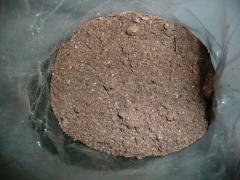Difference between revisions of "Guano"
| Line 1: | Line 1: | ||
{{Infobox_Miscellaneous | {{Infobox_Miscellaneous | ||
| image = Guano.jpg | | image = Guano.jpg | ||
| − | | origin = | + | | origin = See text |
| − | | stowage factor = | + | | stowage factor = 1,19/1,25 m<sup>3</sup>/t (bulk) |
| − | | humidity and moisture = | + | | humidity and moisture = Approx. 15% |
| − | | ventilation = | + | | ventilation = - |
| − | | risk factors = | + | | risk factors = See text |
}} | }} | ||
==Description== | ==Description== | ||
Revision as of 08:58, 27 June 2013
| Infobox on Guano | |
|---|---|
| Example of Guano |  |
| Facts | |
| Origin | See text |
| Stowage factor (in m3/t) | 1,19/1,25 m3/t (bulk) |
| Humidity / moisture | Approx. 15% |
| Ventilation | - |
| Risk factors | See text |
Guano
Contents
Description
Guano is the excrement (feces and urine) of cave dwelling insectivorous bats, seabirds, and seals. The ideal type of guano is found in exceptionally dry climates, as rainwater drains the guano of nitrates. Guano is harvested on various islands in the Pacific Ocean (for example, the Chincha Islands) and in other oceans (for example, Juan de Nova Island and Christmas Island). These islands have been home to mass seabird colonies for many centuries, and the guano has collected to a depth of many meters.
Guano is a nitrogenous organic fertilizer with a high content of phosphoric acid and a moderate proportion of potash.
Full information on this product is in the process of completion.











